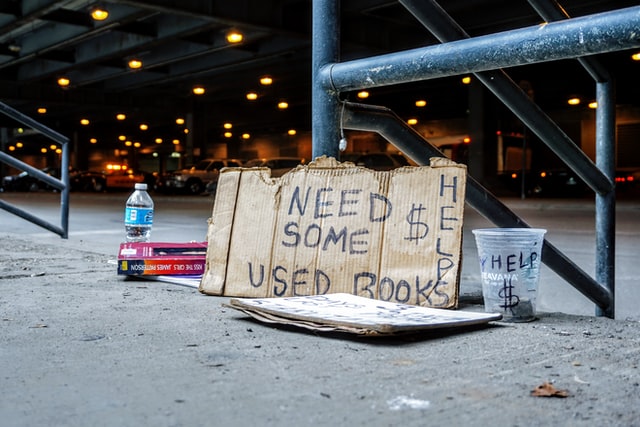There are thousands of institutions of higher learning in only the United States of America. These include colleges, universities, community colleges, and learning centers. Because many of these colleges have hundreds or even thousands of students, and because many of these students utilize college textbooks, there must be millions of books in use today — books that are being examined, read, and learnt from. I started to keep track of the amount of books that are being read all around the world, but I got lost along the way.
Many people believe that the information that is presented in these textbooks is of great value; the topics, subject matter, facts, charts, and lessons may help to create an atmosphere in which knowledge can flow; in this environment, students and others who study these textbooks can acquire knowledge that may contribute to a more positive future (and a better present).
On the other hand, textbooks typically do not remain relevant forever. There is no doubt that there are museums and archives around the world that house ancient books that are hundreds or even thousands of years old. These books, on the other hand, have been handled with great care, and special attention has been paid to the conditions in which they have been stored. However, on a daily basis, the vast majority of college textbooks, both new and used, are read, reread, highlighted, marked, bookmarked, page-folded, shelved, bagged, opened, examined, etc. One can only image the amount of wear and tear that many books are subjected to. If one exercises common sense, handles their textbooks with care, and makes an effort to ensure that no harm occurs to them, they may be rewarded with the feeling that their college books may last for quite some time, possibly even for the rest of their lives! You probably want to take good care of your textbooks, so here are some things to keep in mind. Several items immediately come to mind, including the following:
1.) Writing. Now, a number of students consider selling their textbooks or giving them away if they feel as though they are finished using them; however, if you plan to keep your textbook forever and you feel as though you must write in it, you may wish to consider writing on a separate sheet of paper if the writing does not need to go on the page of the textbook. Currently, a number of students think about selling their textbooks or giving them away if they feel as though they are finished using them. If you feel you absolutely have to write in the book itself, your best bet is to either use a pencil (if you want your writing to be able to be erased) or to write really precisely. It’s possible that in a few days, months, or even years from now, the things that are most essential to you in terms of what you need to write in your textbook won’t be as relevant to you at all.
2.) Emphasizing certain words. Many college students mark important passages in either brand-new or previously used copies of their textbooks. The purpose of highlighting text is typically to draw attention to particular phrases, sentences, or paragraphs that are significant or relevant to the reader; this may be done so that the highlighted text serves as a reminder for something. Because they feel the need to stress the highlighted words, one can highlight a date, a certain year, or a mathematical formula instead of the words themselves. But what happens if a student just highlights a paragraph to call their attention to the fact that they need to read it later? After reading the paragraph, one is presented with another text that has been highlighted. Instead of putting a bookmark there, do you not think it would have been wiser to do something else? Of course, these are only instances. If marking up a textbook in any way is thought to be beneficial or to improve one’s learning in any way, there should be no problems associated with marking up a textbook in any way if one intends to keep it for their entire life. However, if one intends to sell that textbook to a textbook buyer or to another student, it may be prudent to be aware of the possibility of any concerns, issues, or policies regarding the purchase of textbooks with highlighting that the other student or the textbook buyer or an online buyback company may or may not have.
3.) Water. Oh, my heavenly God. Water. As human beings, we are all aware of the importance that food and water may have in our lives. However, I’ve never heard that feeding or watering books is a good idea, so don’t take my word for it! Because the majority of people have quite a bit of common sense, it probably goes without saying that it is probably not a good idea to introduce your textbook to food (i.e. don’t get your sandwich all over the book). Additionally, we probably want to keep our water and liquids away from our books because even a single spill on a textbook book can cause permanent wrinkling of the paper.
4.) Handling. In the same way that one treats important objects with more care than less essential items, one should manage significant items with greater care. For instance, I would imagine that one would handle a variety of technological equipment with extreme caution (i.e. dropping them may not be good for them). In a similar vein, I believe that textbooks play a significant role in education. We don’t want to mishandle them in any way, make unnecessary messes with them, or drop them on the floor. It is possible that a textbook that has been tossed, dropped, or otherwise damaged can still be used; but, the way that I was brought up teaches one to show appropriate reverence for things that are particularly significant.
To tell you the truth, those are the only four things that come to me when I think of how to properly care for books. To be able to use useful knowledge for a better present and a great future may very well be reason enough to take good care of the new or used college textbooks we are using. We can learn a great deal from what teachers and instructors teach; we can learn a great deal from the writings of those who have abundant knowledge. Anyway, as I indicated earlier, I have no idea how many textbooks are in use all across the world because I lost count a while ago. It’s probably best if I go back to counting.



